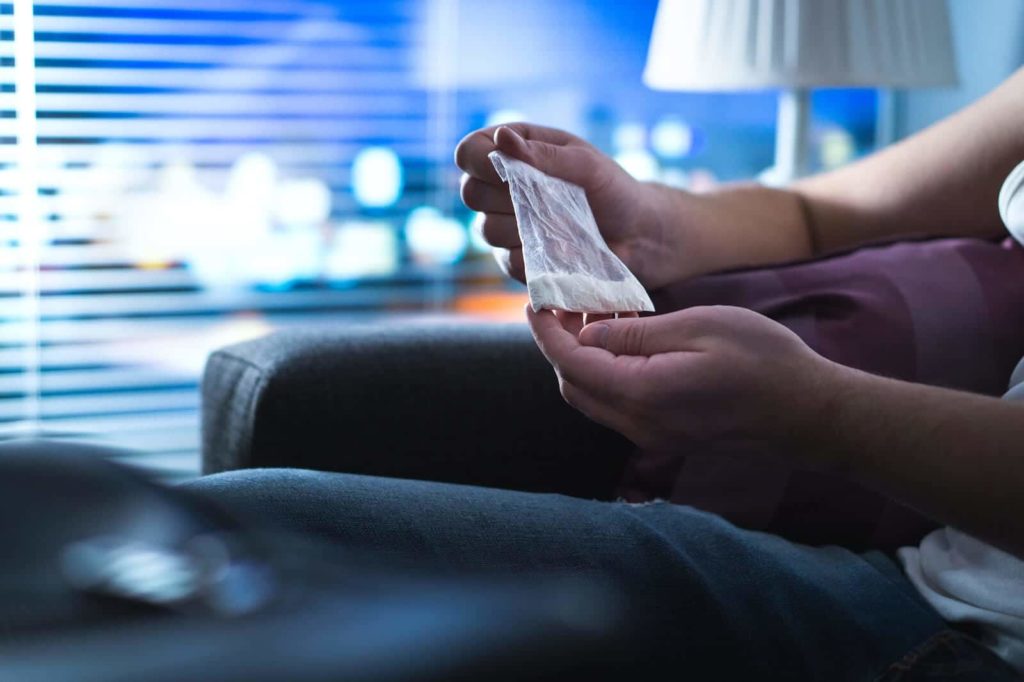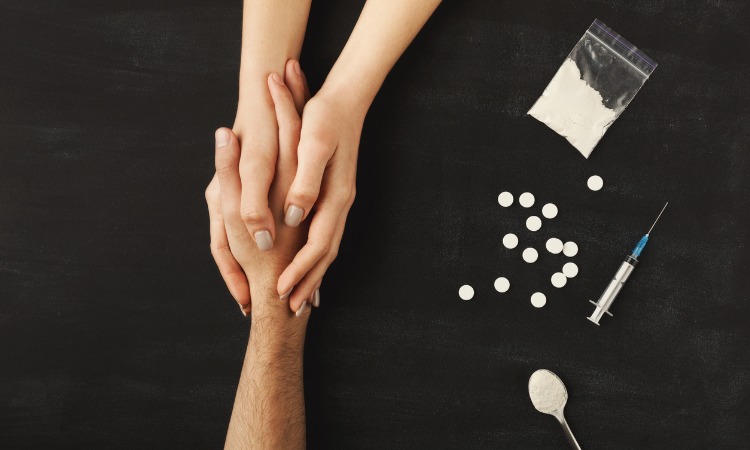Addiction is chronic drug-seeking behavior that’s compulsive and impossible to control, regardless of harmful consequences. While the initial decision to take drugs is a choice, repeated drug use can cause brain chemistry changes that interfere with someone’s self-control and ability to resist intense drug urges.
Relapse is a part of the addiction cycle. Experiencing a relapse isn’t a sign that treatment didn’t work but instead a sign that you didn’t receive sufficient treatment for your condition. Treatment plans should be reviewed often and modified as needed to fit the patient’s current needs.

Common Drugs of Abuse
The most commonly misused substances in the U.S. include:
- Alcohol
- Stimulants (cocaine, crack, methamphetamine)
- Marijuana
- Opioids (prescription painkillers, heroin, fentanyl)
- Sedatives (benzos, barbiturates, z-drugs)
- Synthetic cannabinoids (K2 and Spice)
Each of these substances is different from the others and has highly addictive qualities. These substances activate the reward center of the brain, which is what makes them habit-forming. Substance use disorder and alcohol use disorders are the leading causes of preventable illness in the US. Studies indicate that one-in-nine Americans use drugs recreationally.
Stop the cycle of addiction now. Call us.
The Cycle of Drug and Alcohol Addiction
Initial substance abuse causes a euphoric feeling. Over time, the brain is changed by drugs and slowly becomes desensitized to drugs, so more of the substance must be used to produce the same effect. As someone increases the amount of drugs they consume, drugs begin to destroy their lives. This can happen when someone stops enjoying the things they once loved. Many people lose touch with their friends, family, and their work responsibilities fall by the wayside. The individual becomes so accustomed to being under the influence of drugs that they may no longer feel normal when they stop taking them.
Long-Term Effects of Substance Abuse:
If someone continues to abuse substances, brain structures can change. Substance abuse can affect how someone:
- Behaves
- Handles stress
- Learns
- Makes choices
- Stores memories
If you suspect someone you care about is in the grips of a substance abuse problem, don’t walk away. Don’t allow denial to take hold. Confront the reality. The truth is there are things you can do to help.

We are ready to help. Let’s get started on your tomorrow.
Potential Risk Factors of Addiction
Anyone can develop a substance use disorder. While no one thing determines whether someone will develop an addiction in their lifetime, some factors can influence their chances.
Someone may be more apt to develop an addiction due to their:
- Family & Genetics: Someone’s individual genes, gender, ethnicity, and mental health are all factors that can contribute to an increased risk for substance abuse.
- Environment: Someone’s surroundings can affect their likelihood of developing an addiction. Stress, peer pressure, abuse, and early drug exposure all play a role.
- Age: The earlier someone starts taking drugs, the more likely they’re to chronically abuse substances. This is because the brain isn’t fully formed until they’re in their early 20s. If a teenager starts to take drugs, they’re more likely to engage in risky behaviors.
How To Identify Substance Abuse and Addiction
It can be difficult to distinguish normal teenage moods and anxiety from real signs of drug abuse. Possible signs and symptoms of your family member using drugs can include:
- Problems at work or school – frequently absent from work or school, a sudden lack of interest in favorite activities, grades, and productivity drop.
- Physical health issues – lack of energy, weight gain or loss, red and irritated eyes.
- Neglects personal hygiene – lack of interest in presenting themselves well.
- Sudden changes in behavior – increase isolation and need for privacy—an insistence on secrecy when going out with friends or acting very differently in their familial relationships.
- Money problems – sudden requests for money without explanation. You may discover missing cash or items that have disappeared from your home, indicating they may have been sold to purchase drugs.
Inpatient Treatment and Outpatient Treatment for Addiction
Inpatient and outpatient treatment programs are widely available. Depending on your needs and situation, one may be a better fit than the other. Addiction treatment usually includes group therapy sessions and, in some cases, medication-assisted treatment (MAT). Inpatient programs may include hospitalization if an acute problem needs to be addressed. Therapeutic communities such as sober housing and drug-free environments are also beneficial.
The main difference is inpatient programs require individuals to live at the drug rehab center while attending treatment. In contrast, outpatient programs offer treatment for individuals who wish to stay in a supportive living environment, like sober housing while attending treatment during the day and working towards a less intensive treatment schedule as they progress. A medical detox is usually recommended for most highly addictive substances, as these are substances that can cause problematic and potentially life-threatening withdrawal symptoms.
Locating Alcohol and Drug Addiction Treatment
If you’re ready to make a change or need to find help for a family member, Riverwalk Recovery is here for you. We offer free substance abuse assessments and advice on the best treatment type for your unique situation. Reach out to our addiction treatment team today via our helpline at (423) 264-2600.
Most Insurance Accepted
We work with most major insurance carriers and offer a range of options to fit your lifestyle and financial means
Contact us for help today
We Have A Program To Fit Your Lifestyle
Whether you are struggling with depression, addiction, an eating disorder or some combination of these, we can help. All you need to do is make the first move and reach out to us. Let’s get you better, together.
